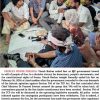Goa is abuzz with excitement as vintage bike and car owners, users, collectors and fans are decking […]
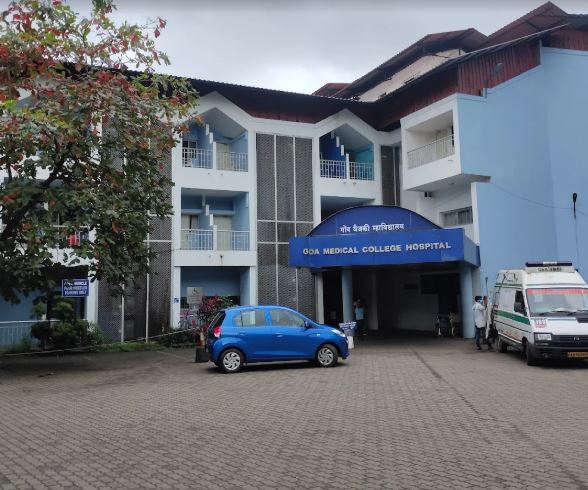
VIP CULTURE BACKLASH!
July 12- July 18, 2025, WEEKEND UPDATES July 11, 2025THE dadagiri by the Gomantak reporter has had a backlash in excess for the media regarding medical facilities at the Goa Medical College & Hospital. As a senior citizen who is a patient of the GMC I had requested the Dean to facilitate a comprehensive checkup in the GMC for me. As I am recovering from spinal tuberculosis, at least I think I have recovered from it although I’m still on TB tablets. I am required to undergo an MRI every six months to check my spine for any leftover infection.
In the normal course, it takes a minimum of a fortnight, if not more, to get an appointment for an MRI, even if it is recommended by a senior consultant at the GMC. I was supposed to get my MRI done in June to review my spine and TB status. It took time for my attendant to get an appointment with the Radiology Department. Finally it was only on Tuesday, July 8, that an appointment was given for an MRI, scheduled for July 25, 2025.
I am also required to do a renal function blood test for which I may have to wait for an equally long time if I approach the GMC. Even when the MRI is completed it could take a week or longer to get the report of the MRI. This may be okay for younger healthier patients but it spells out anxiety and torture for senior citizens with disabilities, who also do not have a support system in place like a family.
Earlier, before the paranoia about VVIP culture at the GMC, a senior consultant could expedite a procedure for an elderly or vulnerable patient. Forget about scans and MRIs, it is difficult to get an appointment even at OPDs in the super-specialty departments in the new GMC hospital.
We hope the new dean and medical superintendent and the Goa Association of Resident Doctors, will work out a standard operating procedure or request for treatment by the media, particularly senior media representatives. Perhaps the Goa Union of Journalists can coordinate with the office of the dean to facilitate urgently required appointments.
BE AWARE OF GOOGLE DOCTORS

THE All-India Institute of Medical Sciences has issued a warning relying on advice from Google or ChatGPT on medical issues. Increasingly, not only patients but even doctors seem to be relying on Google. I recall that when I was at the Geriatric ward at GMC over a year ago the resident doctor used to check Google for side effects of any new medicine prescribed. I know at least one general practitioner with an MD in medicine who finds out what is the most expensive medicine for a particular illness on Google. He benefits because he has a pharmacy next to his clinic.
When I checked with ChatGPT on why I was getting night sweats I got a very disturbing reply. The ChatGPT AI app attributed the night sweating to possible swelling of the spine which is referred to as spinal edema. I was informed by GPT that a swelling of the spinal cord affects the sensory nervous system. That could lead to weakness or paralysis in the limbs. It could also lead to loss of co-ordination and balance. Other symptoms or side effects mentioned were numbness, burning sensation, poor reflexes, tight poor muscles and even bladder and bowl dysfunction. All this scared me as I started associating the symptoms and experiences to the GPT revelations. The AIMS warned that the information you get online are very general and not patient specific. AIMS pointed out that every patient is different and the symptoms may have multiple explanations. AIMS therefore advices patients to cross check with doctors before taking any treatment recommended by digital online advice.
DANGEROUS PATH LABS

I UNDERSTAND that several enterprising Bihari residents of Goa have set up blood collection centers on the basis of the franchises they have got from un-recognized pathology labs. A large number of pathology labs are operating in Goa, including in capital city Panaji where franchises are so called as national pathology chains. Besides the better known labs like Thyrocare there are many fake labs. They employ collectors to go from house to house to get blood and other samples. They also charge more than the genuine labs.
The traditional Goan labs owned and operated by senior Goan pathologists are finding it difficult to do their time and tested business in the face of these new fly by night operators. In our experience, the Dr Velingkar Citi Lab is run by Dr Velingkar. The Arodhya Lab, run by the Dr Kedar Phadte group, and Dr Fonseca’s Pathology Lab run by Dr Sushila Fonseca are the more reliable path labs.
In Margao, one of the most reliable and genuine Lab Plus Clinic is run by Dr Babita Angle-Prabhudessai.
CAUTION AGAINST SUPPLEMENTS

A STUDY conducted by doctors attached to Manipal Hospital has warned against large scale use of nutrition supplements without a doctor’s prescription. Today there are dozens of nutrition supplements ranging from “Ensure” to “Protinex” which are said to benefit in variety of ways. Most importantly they claim to bridge the protein gap in the case of seriously malnutritioned senior citizens. It is promoted that we need Vitamin A supplements for vision loss or Vitamin D and E for muscle weakness, numbness and coordination problems. A shortage of Vitamin B1 could lead to chronic tiredness. A shortage of Vitamin B2 causes cracked lips, sore throat and sensitivity to light. A shortage of Vitamin B6 leads to rashes and swollen tongue. Etcetera.
But the ground reality is that all this vitamins are available in natural foods and there is no need to take outside artificial food supplements. It is ironic that the Geriatric ward of the GMC prescribes heavy doses of protein supplement made by the Apollo Group of Hospitals.
HAMARA SCHOOL CRISES
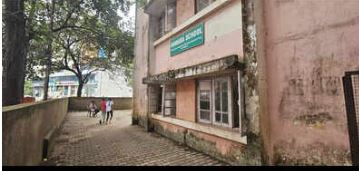
THE Hamara School in St Inez for children of migrants, started by the late Mangala Wagle, may be forced to shut down. The school which was started 20 years ago was functioning from government quarters at St Inez in Panjim. This premises were made available by former late chief minister of Goa, Manohar Parrikar. The school caters to over 50 children of daily wage migrant community.
The government has decided to demolish and redevelop these very old government quarters at St Inez which are more than 50 years old. In the process Hamara School has received notice to vacate the premises. We hope the government or some well-wisher will offer alternate accommodation.
PRESSURE ON PANAJI
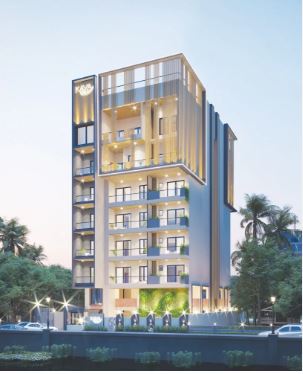
DESPITE Panaji being overcrowded with building constructions more and more new housing projects are coming up and being announced even on the Miramar beach seaface. The latest project of super luxury flats called Alta Mira is being promoted by the Models group. The 3BHK and 4BHK complex of apartments offers 100% power backup, rooftop swimming pool and a key card system for access to the lifts. The super luxury flats are being priced at around Rs10 crore each.
Surely those who have Rs10 crore can chose an alternate location, instead of adding pressure on the overstretched civic facilities of a run down Panjim capital city. Those who buy flats will get luxury apartments but may not be able to find parking spaces for their cars in Panjim. May be Panjim should follow the example of London city, where cars are not permitted in dense city areas.
SAFE LIMIT FOR KIDS
A STUDY published in a leading medical journal has revealed that an average child under the age of five years in India spends close to two hours daily in front of small screen, which is double the recommended limit. Medical experts believe that children up to the age of two years should not be exposed to any screen time, be it mobile phone screens or television screens. The maximum permissible time for children below two years is one hour. Increased screen time is being linked to slow language development, hamper mental growth and poor social skills. There is also risk of obesity as screen time prevents movement, so necessary for growing children.
GIM MOURNS FORMER HUL CHAIRPERSON SM DATTA
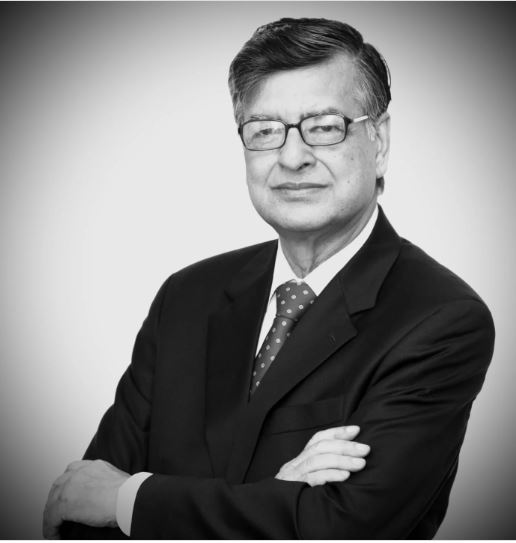
GOA Institute of Management (GIM) expresses deep sorrow at the passing of Susim Mukul Datta, former chairperson of Hindustan Unilever Ltd (HUL) and the first chairperson of the Board of Governors at GIM from 1993 to 2006. Mr Datta passed away on Saturday morning July 5, 2025 in Mumbai, he was 89.
A stalwart of India’s corporate landscape he leaves behind a rich legacy of visionary leadership and transformative strategies that shaped the country’s FMCG sector. Known for his pioneering work in rural marketing, Mr Datta served as chairperson of HUL (then Hindustan Lever Ltd) from 1990 to 1996. During his tenure, he played a pivotal role in orchestrating the landmark merger of Lipton Tea and Brooke Bond—two of the company’s major businesses at the time.
GIM director, Dr Ajit Parulekar, paying tribute tribute to Mr Datta’s lasting contribution to the institution, said, “Mr Datta played a very significant role in shaping the early years of Goa Institute of Management. His guidance during GIM’s formative decade laid the foundation for what the institution has become today. Even after his formal retirement from our Board of Governors, he remained closely associated with GIM and visited our campus on several occasions. We will always be grateful for his wisdom, mentorship, and unwavering support through critical periods of our development.”
GIM will always remember Susim Mukul Datta as a visionary leader and a valued mentor whose legacy continues to inspire future generations.





